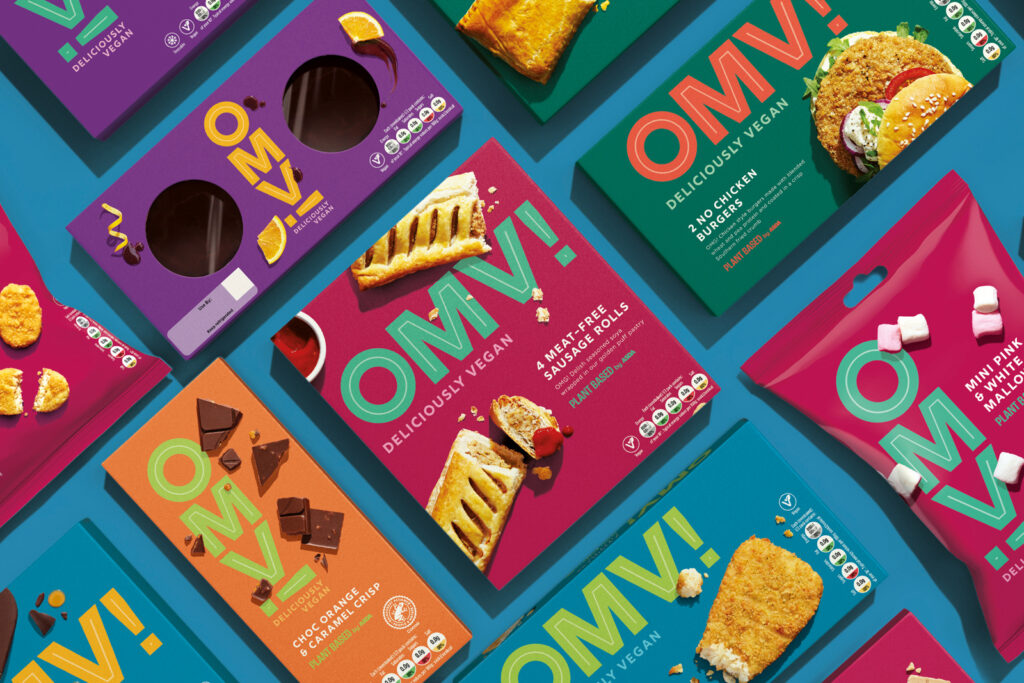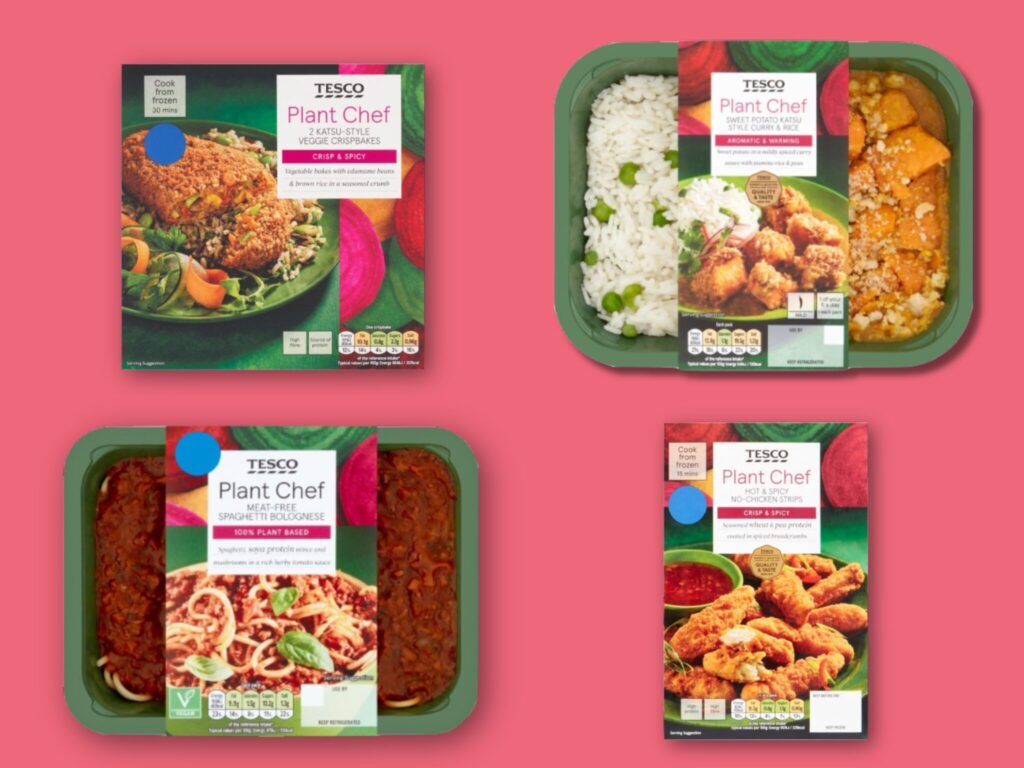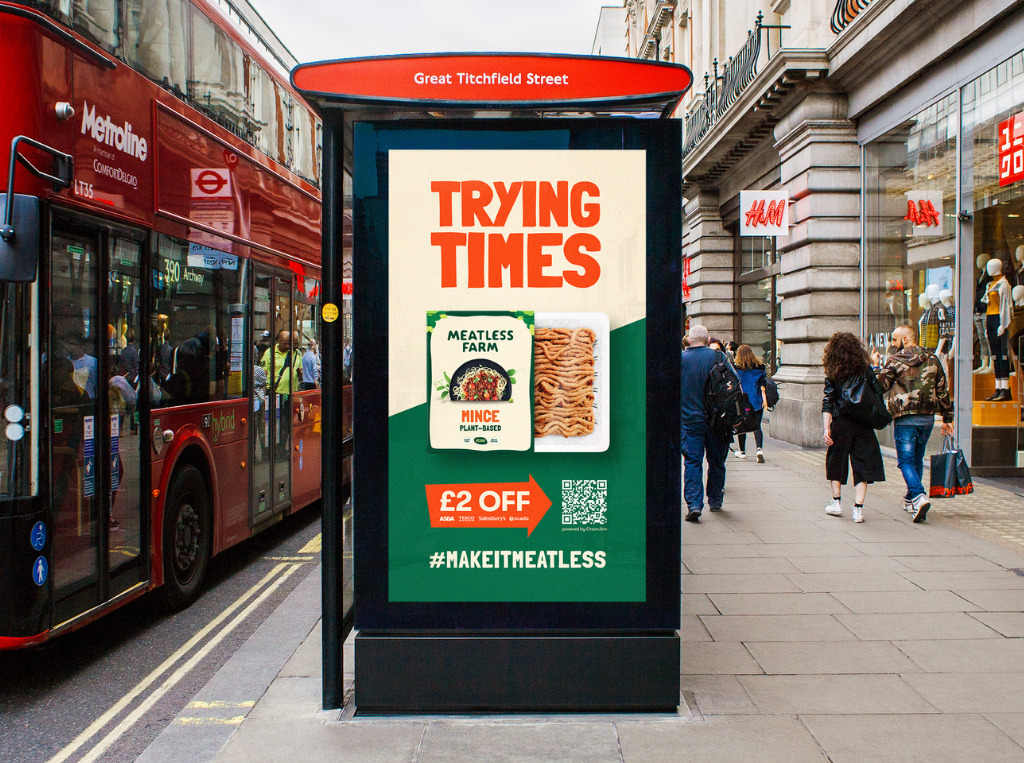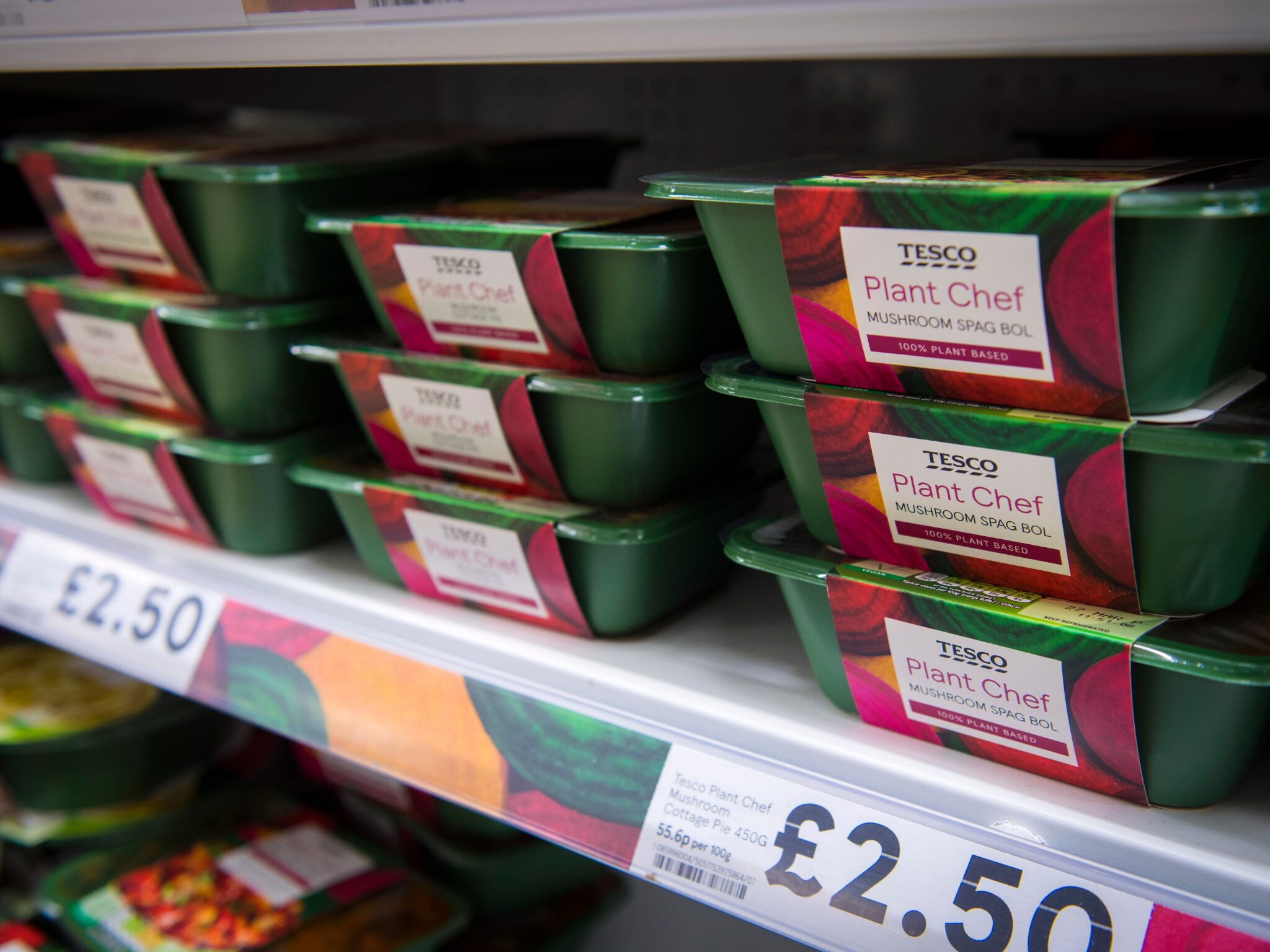Veganuary 2024: UK Supermarkets Champion Private-Label Ranges for Plant-Based Challenge
5 Mins Read
As ever, UK supermarkets are leaning into Veganuary with a huge focus on vegan food items – but this time, they’re spotlighting their own ranges, following a year where private-label products ruled the roost thanks to the cost-of-living crisis.
Every year, supermarkets in the UK transform on January 1 – and it’s not just for the new year. The words ‘vegan’ or ‘plant-based’ are much more prominent on store signs, with monthlong discounts on milk alternatives and meat analogues enabling people to overcome the cost barrier and embrace Veganuary.
This time, while there will be much of the same, a key difference will lie in the variety of products available to consumers. While Veganuary always sees discounts on branded SKUs alongside a few (mostly) limited-edition private-label launches, retailers will be delving deep into their own R&D to create more affordable items for a budget-constrained Britain.
And it will come on the back of the first time private-label sales have overtaken brands since the pandemic, thanks in no small part to the increased cost of living.
Private-label growth to seep into Veganuary

According to market research firm NielsenIQ, private-label sales at UK retailers grew at double the speed of brand items (14% vs 7%) in 2023. In April, own-label accounted for 55% of grocery store sales, and 63% of the volume. And NielsenIQ data for the Grocer’s 2023 Top Products survey revealed that even though supermarket labels saw a 2% decline in volume (about 200 million units), they were still performing better than brands, whose volume was down by 2.6%, or 500 million units.
Additionally, private-label lines experienced more value growth – 12% vs 8% – despite keeping their average prices at two-thirds that of brands. “Without retailers really knowing, they were laying the foundations so that when the cost-of-living crisis hit, the fact there were such strong private-label brands and products already out there made it a lot easier to emphasise that quality and to push even more customers their way,” Paul Stainton, partner at International Private Label Consult, told the Grocer.
A recent NielsenIQ survey revealed that 54% of consumers believe own-label lines are good value for money. Meanwhile, 40% said the products were of higher or equal quality than brands, and 52% thought they were a good alternative to brands. “Private label has emerged as an unexpected hero in the cost of living crisis, helping consumers maintain their taste for value,” wrote Rachel White, UK and Ireland managing director at NielsenIQ.
“But they do not have to simply be a response to tough economic times. Their enduring appeal, growing consumer acceptance, and global success stories underscore their importance in the future of the grocery industry.”
Tesco’s Plant Chef range for Veganuary 2024

The Grocer’s data pointed out how Asda introduced over 800 more own-label items this year as part of its Just Essentials line, while Tesco – the UK’s largest retailer – actually reduced its private-label SKUs by over 500, but still managed to grow value sales by 10% with an innovation focus on “fast-growing categories such as plant-based”. For example, it boosted its Plant Chef line with five new frozen ranges to coincide with Veganuary.
Veganuary 2024 seems primed for similar moves. Last year, over 820 new products were launched during the campaign, and with a record-breaking number of participants expected again, supermarkets are hoping to capitalise on the surge of vegan sales with cheaper own-label products and ready meals to ease wallet pressure.
Tesco is introducing a range of international flavours to its Plant Chef line. Products include Meat Free Spaghetti Bolognese, No-Beef Meatballs, Meat Free Southern Fried Fillets, Hot & Spicy No-Chicken Strips, Sweet Potato Katsu Style Curry, Mexican Inspired Bean Burgers, Katsu Style Veggie Crispbakes, and Spicy Bean Burgers.
These range from £1.75 to £3, and serve as either building blocks for dishes or as entire meals themselves. “Plant Chef is not only designed for those already eating a vegan diet, but is also perfect for anyone looking to include more plant-based meals in their weekly routine, with a selection of convenient meals that don’t compromise on taste,” the retailer said, hinting at the push towards flexitarians taking up the 31-day Veganuary challenge.
Other retailers are expected to add new plant-based products to their own-label lines too. Discount supermarkets Lidl and Aldi typically offer limited-edition private-label vegan items like tofu, tempeh, vegan cheese and chocolate to get a slice of the Veganuary pie.
Can Veganuary stem the meat-free fall?

The Grocer’s Top Products survey also revealed that sales of meat-free products in the UK are on the decline, particularly as the higher markups discourage cost-of-living-hit shoppers from buying vegan analogues. Sales have declined by £38.4m, while volume is down by 4.2%. Meanwhile, fresh meat was among the fastest-growing sectors, with £352.5M in sales growth.
“Inflation of meat-free ingredients has been ahead of meat, which has meant meat-free has become a pricier option,” explained Chris Doe, UK marketing and innovation director at Pilgrim’s Food Masters. “In turn, the industry has seen flexitarian shoppers increasingly switch back to meat.”
This has spurred campaigns like restaurant chain Burgers & Beyond’s Anti Veganuary menu – the eatery is removing all vegan offerings from its menu and replacing them with meat-based options. “As a butcher, it goes without saying that I think Veganuary is an unhelpful message,” says Richard Turner, who is consulting on the menu. “If you want to eat less meat then just buy less, but better quality.”
But the UK is doing neither of those things. While its population is eating less meat and dairy than ever recorded, sales of fresh meat – as mentioned above – are growing. And of the meat that Brits are buying the most, 95% comes from factory farms.
“The cost-of-living crisis continues to impact UK consumers and our data shows that this has had an effect on how they shop for groceries and what they choose to put in their baskets,” said NielsenIQ’s White.
“There has been a real emphasis, despite inflation, on stripping it back to traditional items, such as fresh meat and dairy products and a move away from trying more expensive meal solutions, which have shifted the dial in terms of the meat-free category,” she added. “Whether this will have an impact in January when many like to experiment with Veganuary, remains to be seen.”



